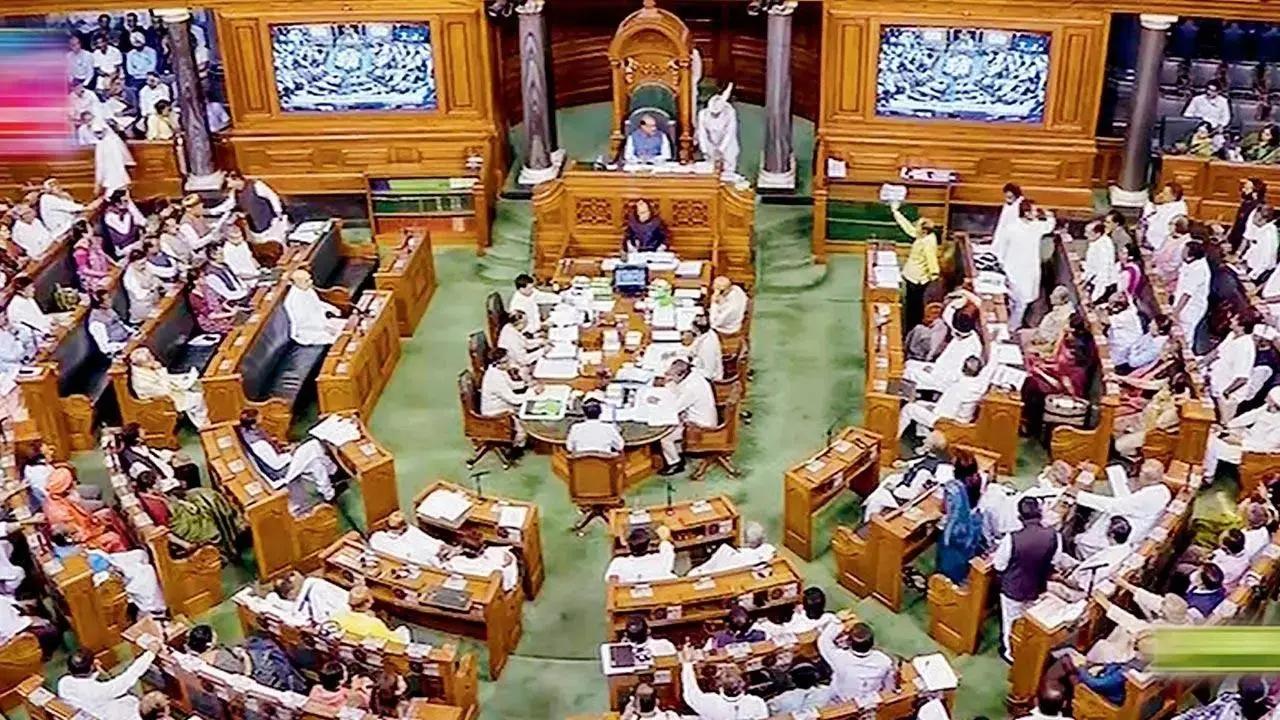Indian lawmakers have proposed a criminal law amendment to include various crimes like financial scams, cyber crimes, contract killing under organised crimes

File photo
Indian Parliamentary panel has lauded a proposed criminal law amendment which aims to bring various crimes like financial scams, cyber crimes, vehicle theft, contract killing and Ponzi schemes under the umbrella of organised crime, stated an agency report. The amendment suggests stringent punishments, such as life imprisonment or the death penalty, for such offences, particularly if they result in a person's death.
ADVERTISEMENT
The Parliament's Standing Committee on Home Affairs, led by Bharatiya Janata Party MP Brijlal, highlighted the inadequacy of the existing laws in tackling severe offences like kidnapping, land grabbing contract killing, extortion as many major financial scams and human trafficking. The panel, lauding the proposed additions to punishment said that they are "very effective addition".
Under the Bharatiya Nyaya Sanhita (BNC) clause 9, unlawful activities including kidnapping, robbery, vehicle theft, extortion, land grabbing, contract killing, economic offences, cyber crimes which have severe consequences and trafficking of humans, drugs, illicit goods or services and weapons and human trafficking racket for sex work or ransom by effort of groups of individuals acting in concert, singly or jointly, either as a member of an organised crime syndicate or on behlaf of such syndicate, by use of violence, threat of violence, intimidation or etc, or engaging in unlawful means of obtaining direct or indirect material benefit, including a financial benefit, shall be considered as organised crime, stated the report.
It further explained that economic offences shall include criminal breach of trust, forgery, counterfeiting of currency or valuable securities, running ponzi schemes and mass marketing fraud or multi-level marketing schemes with a view to defraud people at large for obtaining monetary benefits or large scale organised betting in any form shall be constituted as offences of money laundering and hawala transactions.
According to the agency report, under BNS, the punishment for organised crime shall be, "(i) if such offence has resulted in death of any person, be punishable with death or imprisonment for life and shall also be liable to fine which shall not be less than rupees ten lakhs; (ii) in any other case, be punishable with imprisonment for a term which shall not be less than five years but which may extend to imprisonment for life and shall also be liable to fine which shall not be less than rupees five lakhs."
Reportedly, the committee did not only say that it would be an "effective addition" but also recommended the inclusion of terms like a gang, mafia, crime ring, gang criminality, and racketeering to clarify the criteria of categorising an organisation as "criminal".
Presently, the punishment for criminal conspiracy is a death sentence, imprisonment for life or rigorous imprisonment for two years or upwards.
The Bharatiya Nagarik Suraksha Sanhita (BNSS-2023) bill, introduced in the Lok Sabha in August along with Bharatiya Nyaya Sanhita (BNS-2023) and Bharatiya Sakshya Adhiniyam (BSA-2023) bills, seeks to replace the old criminal laws--the Code of Criminal Procedure Act, 1898, the Indian Penal Code, 1860, and the Indian Evidence Act, 1872. The reports from the parliamentary panel were submitted to the Rajya Sabha recently.
 Subscribe today by clicking the link and stay updated with the latest news!" Click here!
Subscribe today by clicking the link and stay updated with the latest news!" Click here!







